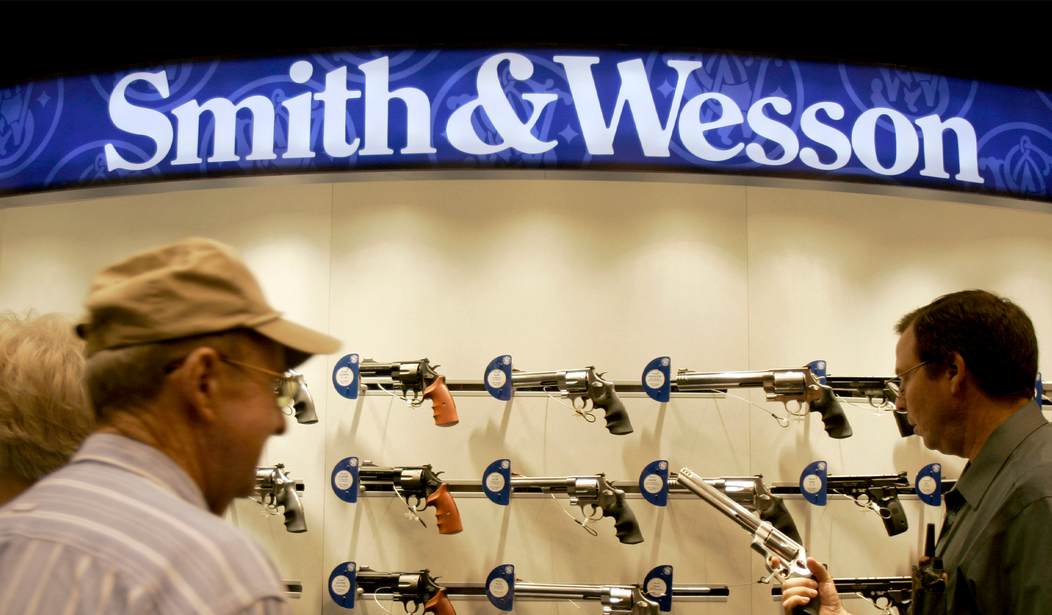It's been a mixed year for Second Amendment advocates, but on Thursday, came a significant win from the Supreme Court on that front. The Court announced a decision in "Smith & Wesson Brands, Inc., Et Al. Petitioners v. Estados Unidos Mexicanos." In this case, Mexico in effect sued American gun manufacturers for the plague of violence that is sweeping Mexico. The Supreme Court, in its decision, noted that Mexico's case runs afoul of the Protection of Lawful Commerce in Arms Act, or PLCA.
Best of all, the decision was unanimous. Here's the main point of the decision:
Because Mexico’s complaint does not plausibly allege that the defendant gun manufacturers aided and abetted gun dealers’ unlawful sales of firearms to Mexican traffickers, PLCAA bars the lawsuit.
There are a couple of points in the decision that explain the Court's reasoning:
Federal aiding and abetting law reflects the view that a person may be responsible for a crime he has not personally carried out if he deliberately helps another complete its commission. To aid and abet a crime, a person must take an affirmative act in furtherance of the offense and intend to facilitate its commission—or as Judge Learned Hand stated these requisites, must “participate in” a crime “as in something that he wishes to bring about” and “seek by his action to make it succeed.”
And:
Second, aiding and abetting usually requires misfeasance rather than nonfeasance: Absent an independent duty to act, failures, omissions, or inactions will rarely support liability. And third, routine and general activity that happens on occasion to assist crime—in essence, incidentally—is unlikely to count as aiding and abetting. Thus, for instance, an ordinary merchant does not become liable for criminal misuse of her goods simply by knowing that, in some fraction of cases, misuse will occur.
In summary, for Mexico's claim to have any merit, it would have had to show that Smith & Wesson and the other manufacturers named in the suit actively affirmatively participated in some way in the trafficking of their products into Mexico, or deliberately created conditions favorable to such trafficking.
See Also: Ghost Gun Ban Upheld by Supreme Court
Concealed Carry Reciprocity: Congressional Republicans Are Trying Again
It's rather remarkable that this was a unanimous decision. However, the Court renders unanimous decisions rather more often than it might seem at first glance, perhaps because many of the more high-profile cases are split decisions. This case has been followed closely by Second Amendment supporters and can only be seen as a win on that front, although it's certain that the would-be gun-banners will not be so happy about it.
It's important to note that the Court, in this decision, reversed the decision of a lower court, the First Circuit Court of Appeals, and remanded the case for further proceedings consistent with the Supreme Court's decision, which in essence means closing the case out.
Justice Kagan delivered the Court's opinion. Justices Thomas and Jackson filed concurring opinions.
The defendants in the case, aside from Smith & Wesson, included Barrett Firearms Manufacturing, Inc., Beretta USA Corp., Century International Arms, Inc., Colt’s Manufacturing Company, LLC, Glock, Inc., and Sturm, Ruger & Co., Inc.
Help RedState continue to tell the truth about the Trump administration's accomplishments as we continue to usher in the Golden Era of America. Join RedState’s VIP and use promo code FIGHT to get 60% off your membership today.














Join the conversation as a VIP Member